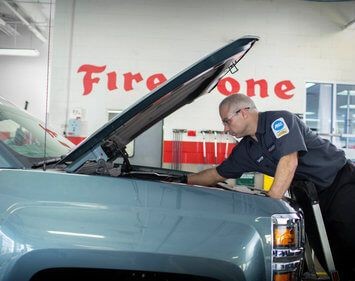If your car sputters when you accelerate, it’s a clear sign that something is amiss under the hood. This sputtering, often felt as hesitation or jerking as you press the gas pedal, shouldn’t be ignored. It indicates your engine isn’t getting what it needs to run smoothly, and continuing to drive without addressing the issue can lead to more significant problems and costly repairs down the line. Let’s explore the common reasons why your car might be sputtering when you try to speed up.
Explanation #1: Fuel System Troubles
One of the most frequent culprits behind engine sputtering, particularly during acceleration, lies within your car’s fuel system. This system, comprised of the fuel filter, fuel pump, and fuel injectors, is responsible for delivering a consistent and clean supply of fuel to your engine. Each component plays a crucial role in ensuring the engine receives the correct fuel-air mixture needed for efficient combustion and power generation.
- Fuel Filter: Over time, the fuel filter can become clogged with dirt, rust, and debris from the fuel tank. A restricted fuel filter hinders the flow of fuel, especially when the engine demands more fuel during acceleration.
- Fuel Pump: The fuel pump’s job is to push fuel from the tank to the engine. A weakening or failing fuel pump might not be able to supply enough fuel pressure, particularly under the increased demand of acceleration.
- Fuel Injectors: Fuel injectors spray a precise amount of fuel into the engine. If these injectors become clogged or dirty, they can’t deliver the fuel efficiently, leading to sputtering and poor performance.
Regular fuel system maintenance, including fuel filter replacement and fuel injector cleaning, can prevent these issues. Consult your vehicle’s owner’s manual for recommended service intervals or consider a preventative fuel system cleaning service annually to keep things running smoothly.
 A Firestone certified technician inspecting a car engine to diagnose the cause of sputtering during acceleration.
A Firestone certified technician inspecting a car engine to diagnose the cause of sputtering during acceleration.
Explanation #2: Spark Plug Problems
Spark plugs are essential for igniting the air-fuel mixture in your engine’s cylinders, creating the combustion that powers your vehicle. Worn, fouled, or damaged spark plugs can significantly impact engine performance and are a common cause of sputtering, especially during acceleration.
When spark plugs are degraded, they may produce a weak or inconsistent spark. This incomplete combustion leads to misfires, where the fuel-air mixture in one or more cylinders doesn’t burn correctly. Misfires are often felt as sputtering or jerking, particularly when the engine is under load, such as during acceleration. Ignoring worn spark plugs can eventually lead to difficulty starting the car and reduced fuel efficiency.
Routine tune-ups, which include spark plug inspection and replacement, are vital for maintaining optimal engine performance. Check your owner’s manual for the recommended spark plug replacement interval for your vehicle.
Explanation #3: Mass Airflow (MAF) Sensor Issues
The Mass Airflow (MAF) sensor is a critical component in your car’s engine management system. It measures the amount of air entering the engine, providing this data to the engine control unit (ECU). The ECU uses this information to calculate the correct amount of fuel to inject, ensuring the optimal air-fuel mixture for efficient combustion.
A dirty or faulty MAF sensor can send inaccurate readings to the ECU. If the MAF sensor underestimates the amount of air entering the engine, the ECU might inject too much fuel, leading to a rich mixture. Conversely, if it overestimates the air, the mixture becomes lean (too much air, not enough fuel). Both rich and lean conditions can cause engine sputtering, rough idling, poor acceleration, and decreased fuel economy.
Regular air filter changes help protect the MAF sensor from dirt and debris. If sputtering occurs, a professional inspection can determine if cleaning or replacing the MAF sensor is necessary.
Explanation #4: Catalytic Converter Problems
The catalytic converter is part of your vehicle’s exhaust system, responsible for reducing harmful emissions. It converts pollutants like carbon monoxide, hydrocarbons, and nitrogen oxides into less harmful substances.
A failing or clogged catalytic converter can create back pressure in the exhaust system, hindering the engine’s ability to expel exhaust gases efficiently. This back pressure can lead to a range of performance issues, including engine sputtering, particularly when accelerating, as the engine struggles to breathe properly. Other symptoms of a catalytic converter problem can include a sulfur smell, rattling noises from under the car, and illuminated check engine light.
Catalytic converter issues often arise from other engine problems, such as prolonged misfires or oil leaks. Addressing the root cause and replacing a faulty catalytic converter is crucial for both engine performance and environmental compliance.
Ignoring engine sputtering when accelerating is never a good idea. It’s a symptom indicating an underlying problem that needs attention. Addressing these issues promptly not only restores smooth engine performance but also prevents potential long-term damage and more expensive repairs. If your car is sputtering, it’s best to have it diagnosed by a qualified technician to pinpoint the exact cause and get it fixed.